With great sadness, we announce the passing of the Coenzyme Q10 researcher Dr. William V. Judy, on October 30, 2022.
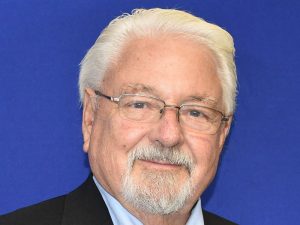
Dr. Judy completed undergraduate study in Anatomy and Physiology and graduate study in Bio-physics and Physiology at the University of Kentucky in Lexington. He did his Ph.D. work at the West Virginia Medical School in Morgantown. His dissertation was entitled Sympathetic Nervous System Control of Renal Hemodynamics. In addition to being a CoQ10 researcher, Dr. Judy was a professor of Physiology and Bio-Physics at the Indiana University School of Medicine.
For many years, Dr. Judy was a valued contributor and author on q10facts.com. The depth and breadth of his knowledge of CoQ10 research was unsurpassed. He will be sorely missed by family and friends and colleagues and readers of Q10facts.com.
Early career of Dr. William Judy
As a young man, Dr. Judy worked as a bio-physicist at the Manned Space Craft Center in Houston, Texas, and at Cape Canaveral in Florida. Among other assignments, he carried out in-flight medical experiments on the Gemini and Apollo missions.
Dr. Judy’s Early CoQ10 Research
Managing clinical trials in the 1980s and 1990s, Dr. Judy observed good response of chronic heart failure patients to CoQ10 adjuvant treatment [Judy 1984; Judy 1986a]. Patients administered Coenzyme Q10 together with conventional heart failure medication had significantly better survival than patients administered conventional heart failure medication alone [Judy 1986a].
The adjuvant CoQ10 treatment was associated with improvement in cardiac pumping and contractibility. Moreover, Dr. Judy observed that the patients’ heart function gradually decreased if their CoQ10 treatment was discontinued [Judy 1986b].
Dr. Judy also reported beneficial outcomes of CoQ10 supplementation of heart surgery patients [Judy 1993] and of chronic fatigue syndrome patients [Judy 1998].
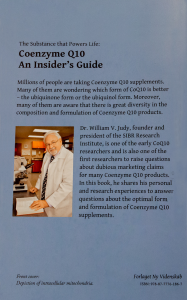
Dr. Judy was the founder and president of the SIBR Research Institute. SIBR = Southeastern Institute for Biomedical Research. In 2018, Dr. Judy published the book Insider’s Guide to Coenzyme Q10: The Substance That Powers Life. The book is available from amazon.com.
Dr. Judy concluded:
- Coenzyme Q10 is a safe and effective adjunctive treatment for heart failure that improves symptoms and survival [Judy 1984; Judy 1986a; Judy 1991b].
- Coenzyme Q10 adjuvant treatment of heart failure patients is, necessarily, a long-term therapy, i.e., discontinuing patients’ CoQ10 treatment will result in a clinical relapse [Judy 1991a; Hall 1990].
- CoQ10 supplementation does not affect the endogenous synthesis of Coenzyme Q10. If CoQ10 supplementation is discontinued for any reason, then the patient’s serum CoQ10 concentrations return to the pre-supplementation levels [Judy 1991a].
Later Studies of CoQ10 Supplementation and Cardiovascular Disease
Dr. Judy’s early clinical studies of CoQ10 supplementation of heart failure patients were the precursor of important later studies:
- The Q-Symbio Study of the Effect of Coenzyme Q10 on Morbidity and Mortality in Chronic Heart Failure [Mortensen 2014; Mortensen 2019].
Adjuvant CoQ10 therapy – 3 x 100 mg/day for two years – was associated with significantly reduced risk of major adverse cardiovascular events and hospitalization and with significantly improved survival [Mortensen 2014].
A sub-study of the European segment of the Q-Symbio Study showed that the adjuvant CoQ10 treatment also increased the patients’ left ventricular ejection fraction significantly, compared to placebo treatment [Mortensen 2019].
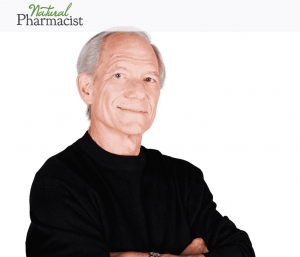
I am a natural pharmacist and nutritionist. I have studied drug-induced nutrient depletions including CoQ10 depletions. I am the author of the book, available on amazon.com: Rapamycin: Rapamycin, mTOR, Autophagy & Treating mTOR Syndrome. Bill Judy was a valued friend and colleague.
The combined supplementation – 2 x 100 mg Coenzyme Q10 and 1 x 200 mcg selenium daily for four years – was associated with significantly improved heart function and significantly reduced cardiovascular mortality in community living senior citizens [Alehagen 2013]. The active treatment was associated with significantly reduced levels of blood biomarkers for oxidative stress, inflammation, and fibrosis [Alehagen 2018].
Research into CoQ10 Absorption and Bio-availability
Later in his career, Dr. Judy turned his attention to studies of CoQ10 absorption and bioavailability [Judy 2022].
He was especially interested in the 2019 Lopez-Lluch study that CoQ10 bioavailability depends much more on the formulation of the CoQ10 supplement than it does on the form of the supplement, i.e., whether ubiquinone or ubiquinol form [Lopez-Lluch 2019]. Dr. Judy noted that the human body has at least five enzyme systems to convert Coenzyme Q10 in the ubiquinol form to the ubiquinone form as needed [Mantle & Dybring 2020].
His own research showed Dr. Judy that ingested Coenzyme Q10 will be absorbed in the ubiquinone form, will be rapidly converted to the ubiquinol form in the lymph, and will enter the blood circulation predominantly in the ubiquinol form [Judy 2021 Aug; Judy 2021 Oct]. That ingested Coenzyme Q10 entered the blood in the ubiquinol form made sense to Dr. Judy. After all, there is much more need for the antioxidant form – ubiquinol – in the plasma and in the plasma lipoproteins than there is a need for ubiquinol, the form that is essential for the process of ATP energy generation [Pelton 2020].
Conclusion: Coenzyme Q10 Researcher Dr. William V. Judy
In the field of Coenzyme Q10, we have lost a competent, knowledgeable, and empathetic researcher who was passionate about the heart health benefits of Coenzyme Q10 supplementation and who had the courage of his convictions.
Our thoughts go out to Dr. Judy’s family: his wife Jan Judy and the children and grandchildren.
Ross Pelton & Richard Morrill
Sources
Alehagen U, Johansson P, Björnstedt M, Rosén A, & Dahlström U. Cardiovascular mortality and N-terminal-proBNP reduced after combined selenium and Coenzyme Q10 supplementation: a 5-year prospective randomized double-blind placebo-controlled trial among elderly Swedish citizens”. International Journal of Cardiology. 2013;167(5):1860–1866.
Alehagen U, Aaseth J, Alexander J, & Johansson P. Still reduced cardiovascular mortality 12 years after supplementation with selenium and coenzyme Q10 for four years: A validation of previous 10-year follow-up results of a prospective randomized double-blind placebo-controlled trial in elderly”. PLoSOne. 2018;13(4):e0193120.
Hall JH, Judy WV & Folkers K. Long-term survival in Coenzyme Q10 treated congestive heart failure patients. Circulation. 1990;82:suppl3:675.
Judy, William V. The Substance That Powers Life: Coenzyme Q10, An Insider’s Guide. 2018. ISBN 978-87-7776-186-7. Available from amazon.com.
Judy WV, Hall JH, Toth PD & Folkers K. Myocardial effects of Coenzyme Q10 in primary heart failure. Biomedical and Clinical Aspects of CoQ10. 1984;353–368.
Judy WV, Hall JH, Toth PD & Folkers K. Long term management of end stage heart failure with Coenzyme Q10. Biomedical and Clinical Aspects of CoQ10. 1986a;291–303.
Judy WV, Hall JH, Toth PD & Folkers K. Double blind and crossover trial with Coenzyme Q10 on patients with cardiac disease. Biomedical and Clinical Aspects of CoQ10. 1986b;315–324.
Judy WV, Hall HJ & Folkers K. Improved long-term survival in Q10 treated congestive heart failure patients compared to conventionally treated patients. Biomedical and Clinical Aspects of Q10. 1991a;291–300.
Judy WV, Hall JH & Folkers K. CoQ10 withdrawal. Clinical relapse in congestive heart failure. Biomedical and Clinical Aspects of Q10. 1991b;283–290.
Judy WV, Stogsdill WW & Folkers K. Myocardial preservation by therapy With Coenzyme Q10 during heart surgery. Clin. Investig. 1993;71(8Suppl): S155-61.
Judy WV, Stogsdill WW & Folkers K. Dose related effectiveness of Coenzyme Q10 in the treatment of chronic fatigue. Boston: 1st Conf. of the Intl. Coenzyme Q10 Assn. 1998;86.
Judy WV. The Instability of the lipid-soluble antioxidant ubiquinol: Part 1-lab studies. Integr Med (Encinitas). 2021 Aug;20(4):24-28.
Judy WV. The Instability of the lipid-soluble antioxidant ubiquinol: Part 2-dog studies. Integr Med (Encinitas). 2021 Oct;20(5):26-30.
Judy WV. The Instability of the lipid-soluble antioxidant ubiquinol: Part 3-misleading marketing claims. Integr Med (Encinitas). 2021 Dec;20(6):24-28.
Judy WV. The Single-dose absorption and steady-state bioavailability of different Coenzyme Q10 formulations. Integr Med (Encinitas). 2022 Feb;21(1):28-34.
López-Lluch G, Del Pozo-Cruz J, Sánchez-Cuesta A, Cortés-Rodríguez AB, Navas P. Bioavailability of coenzyme Q10 supplements depends on carrier lipids and solubilization. Nutrition. 2019 Jan;57:133-140.
Mantle D. & Dybring A. Bioavailability of Coenzyme Q10: an overview of the absorption process and subsequent metabolism. Antioxidants. 2020;9 (5):386.
Mortensen SA, Rosenfeldt F, Kumar A, Dolliner P, Filipiak KJ, Pella D, Alehagen U, & Littarru GP. The Effect of Coenzyme Q10 on morbidity and mortality in chronic heart failure: results from Q-SYMBIO: A randomized double-blind trial. Journal of the American College of Cardiology. 2014;2 (6):641–9.
Mortensen AL, Rosenfeldt F, & Filipiak KJ. Effect of Coenzyme Q10 in Europeans with chronic heart failure: a sub-group analysis of the Q-Symbio randomized double-blind trial. Cardiology Journal. 2019;6(2):147–156.
Pelton, R. Coenzyme Q10: A miracle nutrient advances in understanding. Integrative Medicine. 2020;19(2):16–21.
The information presented in this article is not intended as medical advice and should not be used as such.
14 November 2022


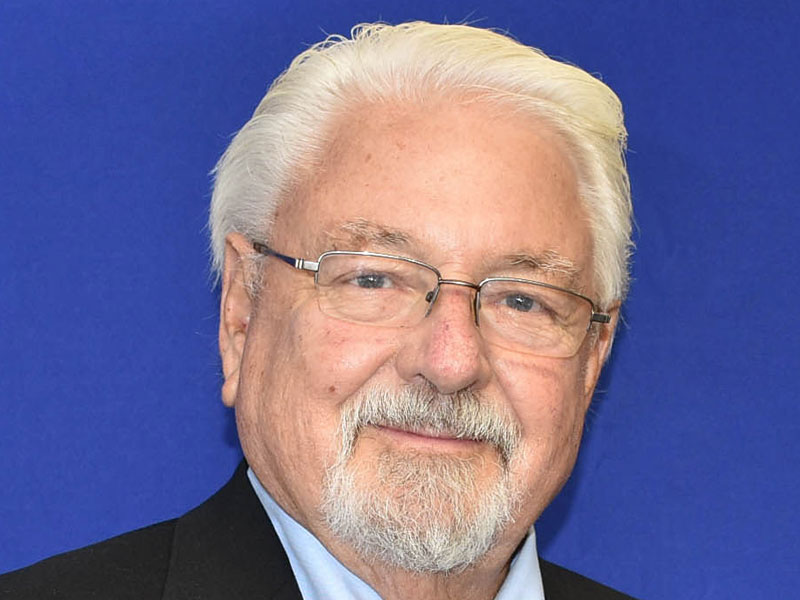


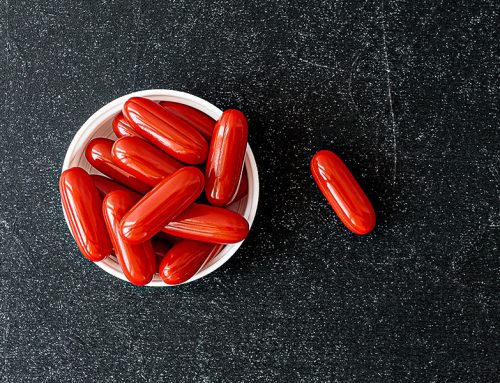


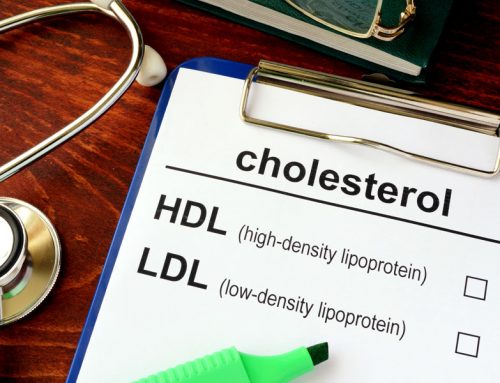
That’s a great recap of Dr. Judy’s work. Coq10 has been a wonderful high-impact anti-oxidant solution for sure! Thank you Dr. Pelton for this in-depth review.